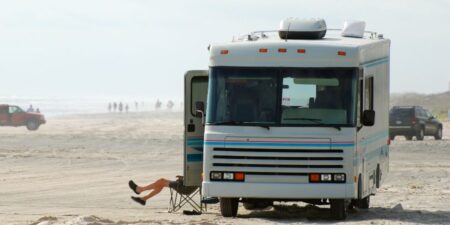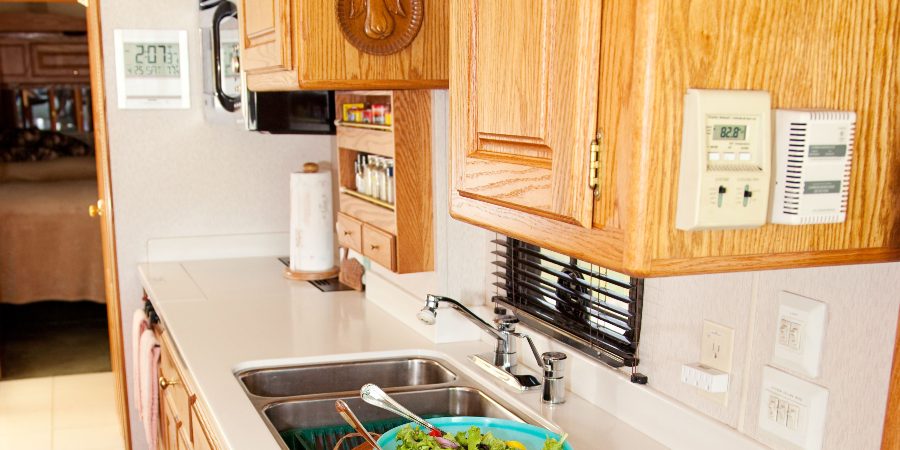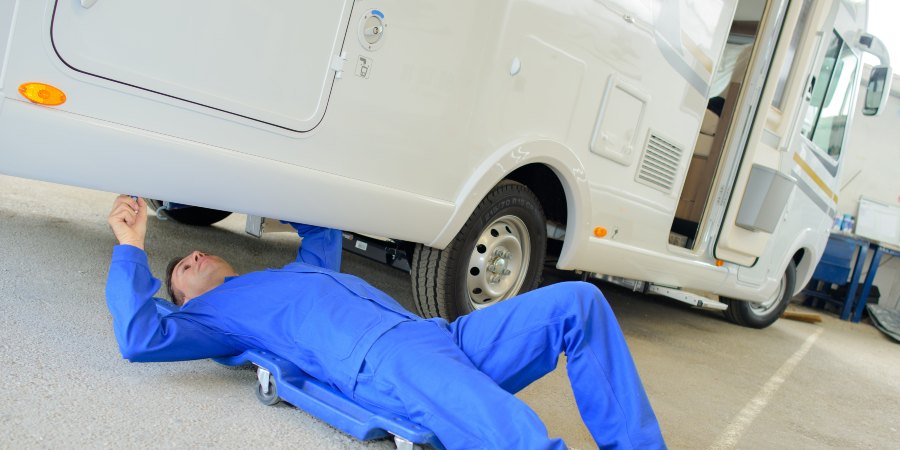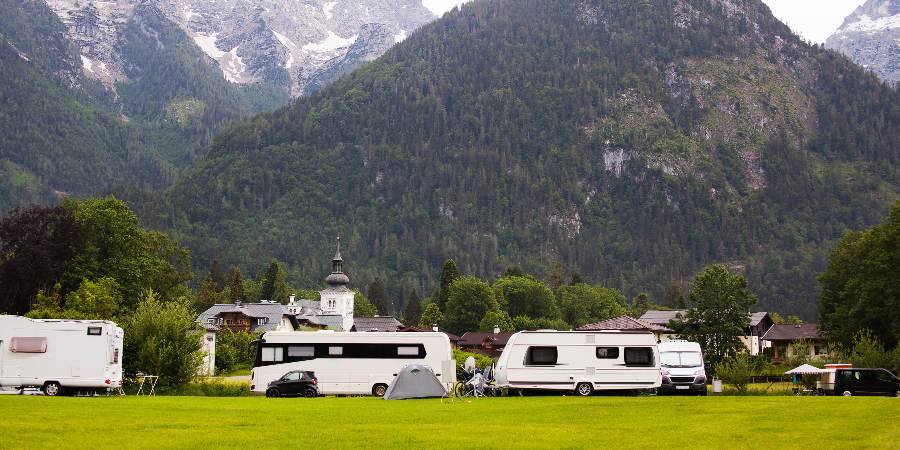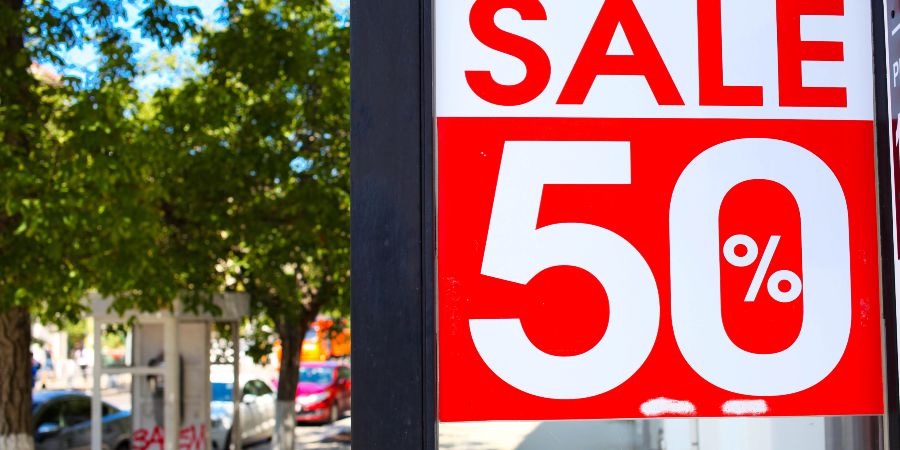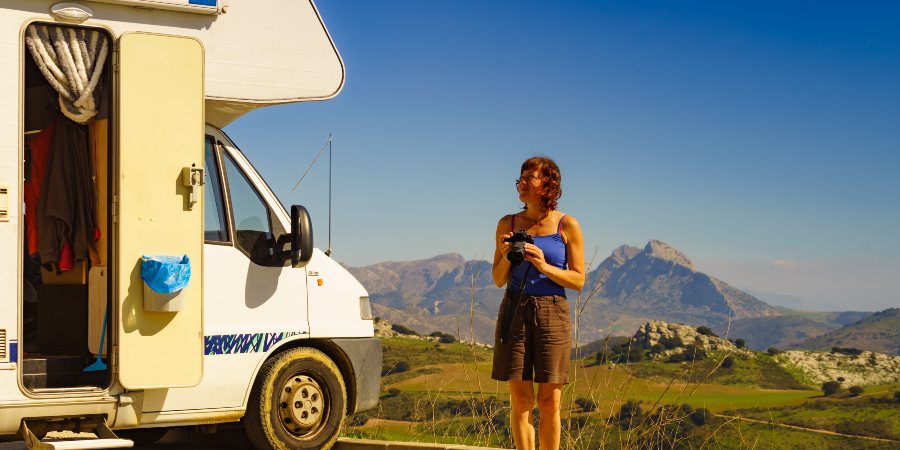Have you ever dreamed of immersing yourself in nature but felt held back by a tight budget? Well, we’re here to tell you it’s entirely possible.
If your recreational budget is tight, like mine is, there are many ways to cut your camping costs without spending a lot of money.
There’s an entire world of camping experiences waiting for you, and it doesn’t have to break the bank. This guide is designed with the frugal camper in mind – full of tips and strategies to help you enjoy more camping trips without straining your wallet.
From renting or borrowing gear to bartering and trading for what you need, let’s explore how you can make the most out of your recreational budget.
Not everything recreational can be exchanged this way, but there are some – and each can help you travel more and spend less.
Read on to discover my recommendations.
Rent or Borrow

Let’s start the list with RVs. Many frugal campers determine that they don’t travel enough to justify buying an RV for camping a few weekends a year.
Renting makes much more sense, especially if they can get a discount by pre-paying for vehicle time or mileage, called “blocks.”
Ask local RV retailers about this option.
Other frugal RVers have a rig for weekend trips but still want to take extended trips in RVs that sleep more people or offer more comfort.
Or maybe you want to borrow and try out a smaller rig to see if it better fits your camping needs.
Local RV clubs are an especially good resource for borrowing or trading camping rigs with people you know.
Trade Assets
You have a wide variety of assets besides cash. These assets can be traded for what you want.
For example, you can exchange your goods or services for someone else’s goods or services.
That’s called bartering. It’s similar to a cash transaction without cash.
The most obvious place to start trade is by listing out what you have that you can trade (car, truck, ATV, sports equipment, your skills, etc.).
Then, make a list of what camping things you need (vehicle, tent, camping equipment, etc.).
Finally, begin looking at your camping buddies for folks who have what you need and need what you have.
For example, a new RVer can trade an extra car for a tent trailer. A mechanic can trade services to a friend who is selling an older RV.
Barter and Trade Resources

If you’ve never done much bartering or trading, you may be surprised at how much is being done.
The U.S. barter economy is estimated at over $12 Billion-with-a-B per year.
No currency exchanges hands. In tough economic times, that number goes up. Here are some resources for getting into the barter-and-trade economy with your camping needs.
- RVTrader.com includes many classified ads with the word “trade” in them. Trade up, trade down.
- GoSwap.org is an online property barter site that includes land, houses, cars, motorhomes, travel trailers, boats, aircraft, and other larger assets. There is a fee for listings, but you can read the Search results for free and look for something you want.
- Craigslist.org is the grand-daddy of whatever-you-got transactions. It is one of the top 50 websites in the world! Select the edition for your area, search for “motorhome,” “trade,” or “barter,” and be amazed. Also, be careful. Because it is so popular, it has been abused, and there are numerous scams. Remember: “If it sounds too good to be true, it probably is.”
- Even bigger than Craigslist is eBay.com. At any given time, more than 500 million items are for sale on eBay, including trailers, motorhomes, parts, books, and GPS units. (I purchased one of my pickup-and-trailer rigs via eBay.) And 128 million buyers and sellers are using the system. Barter and trade are not so easy on eBay, but it’s a good resource for selling assets you don’t need and getting good old cash for them.
One caveat: Barter and trade transactions are subject to taxation, just as are cash transactions.
U.S. laws say that such transactions are supposed to be reported to the IRS on Form 1099-B, Proceeds from Broker and Barter Exchange Transactions.
Your state or municipality may have similar requirements.
Want to Connect With a Community of Over 1,078 RV Enthusiasts?
Here’s a good option for the frugal RVer: Consider renting, borrowing, bartering, or trading the next time you reach for your camping wallet.
Travel more and spend less!
Top 10 Rules of Bartering (Video)
Related Questions
1. What are some of the potential advantages of renting or borrowing RVs for camping trips?
Renting or borrowing RVs allows you to have the recreational experience without the cost of owning, maintaining, and storing an RV. It can also provide the opportunity to try out different types of RVs to see what best fits your needs before committing to a purchase.
2. What’s the basic principle of bartering, and how can it be used to cut camping costs?
Bartering involves exchanging goods or services without using cash. For example, if you have a skill or an item that someone else needs, you could offer it in exchange for something you need for your camping trip, like a tent or camping equipment.
3. How do you identify what you can trade or barter with for camping needs?
Answer: Start by listing out your assets. These can include physical items like a car, truck, sports equipment, or even your skills and services. Then, make a list of what camping items you need. Look for potential matches within your network, like your camping buddies, who might have what you need and need what you have.
4. What are some resources where you can explore barter or trade opportunities for camping needs?
Answer: Websites such as RVTrader.com, GoSwap.org, TradeAway.com, and Craigslist.org are great resources to explore for barter or trade transactions. These platforms have extensive listings where people are open to bartering or trading a variety of assets, including camping equipment and vehicles.
5. Is it true that barter and trade transactions can be taxed? How does that work?
Answer: Yes, it’s true. In the U.S., barter and trade transactions are subject to taxation, just like cash transactions. These transactions should be reported to the IRS using Form 1099-B, and your state or municipality may have similar reporting requirements. The value of the goods or services exchanged is what’s considered for tax purposes.
"Man cannot discover new oceans unless he has the courage to lose sight of the shore."
-- Andre Gide


